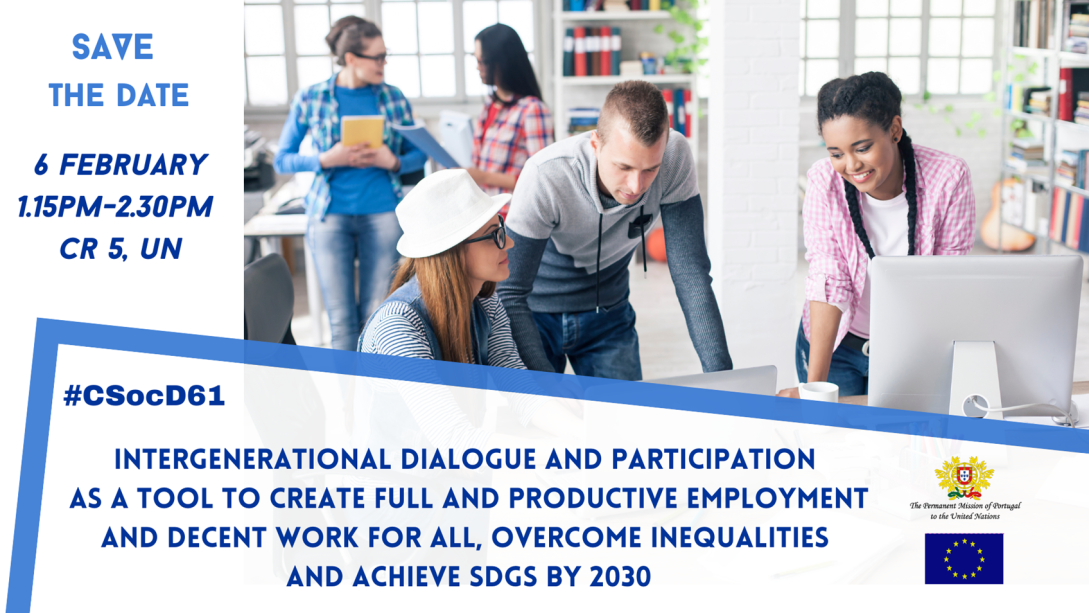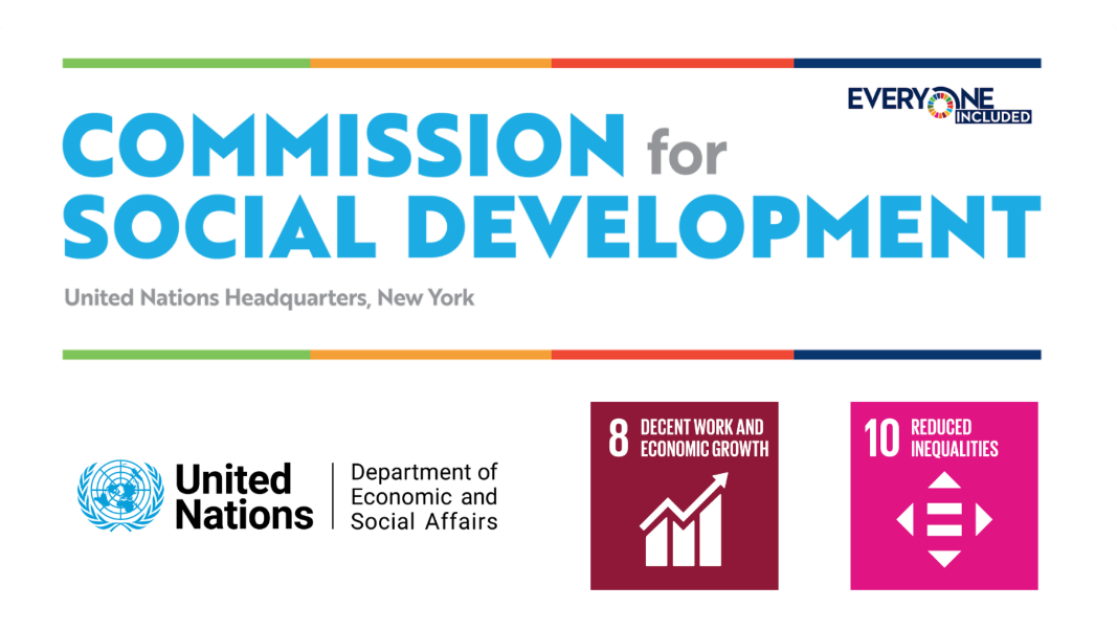Intergenerational Dialogue and participation as a tool to create full and productive employment and decent work for all, overcome inequalities and achieve SDGs by 2030

Background
At the World Summit for Social Development, held in March 1995 in Copenhagen, world leaders acknowledged that there was an urgent need to address profound social problems, especially poverty, unemployment, and social exclusion. Member States pledged to eradicate poverty, promote full and productive employment, and foster social integration to achieve stable, safe, and just societies for all. They committed themselves to promoting the goal of full employment and decent work for all as a priority of economic and social policies.
Even before the COVID-19 pandemic, many countries were experiencing high and rising inequalities. The multifaceted impact of COVID-19 had further exacerbated pre-existing socio-economic inequalities, taking a heavy toll on social development and people’s well-being. The pandemic has also exposed the growing economic insecurity that people are facing and highlighted existing gaps in social protection systems and inadequacies in health and education systems that feed structural inequalities. Different socio-demographic groups have also been impacted differently.
COVID-19 has also accelerated the pace of digital transformation and is changing the way we work and live. This increased pace of digital transformation has amplified the urgency of closing the digital divide. While digital technologies have valuably enhanced productivity in the world of work, they have also increased polarization of the labour market. There is a need to invest in human capabilities and provide workers, both formal and informal, with the opportunities to re-skill, engage in lifelong learning, and acquire digital skills in line with labour market needs.
Scope of the event
Through an intergenerational dialogue, the event will seek to build mutually empowering relationships between generations, as one of the most important factors in achieving the SDGs, in particular SDG 8 and 10 (main SDGs to be discussed during this year’s CSocD). The aim is to ensure that all people – including young and older persons – recognise themselves as owners, drivers, and beneficiaries of the SDGs.
Intergenerational dialogues are a great way for different generations to share their views and experiences. Where young generations can learn from the progress that the generations before them made, older generations can learn from the new battles that younger people are facing and jointly think of ways to challenge them. As such, intergenerational dialogues are learning processes between generations.
Agenda
1.15pm Moderator (Hung Ly/ Finland Youth Delegate) intro/welcome 2min
1.17pm Opening remarks by EU Ambassador (tbc) 3min
1.20pm Moderated Intergenerational Dialogue (youth and older persons) 30min
Moderators ask two sets of questions to selected youth delegates and older persons
(each interlocutor has 2min)
1.50pm Presentation of UN funded project in Guinea-Bissau on Intergenerational Dialogue 10min
2.00pm Views of IGO & UN system representatives around importance of Intergenerational Dialogue 30min (each person has 2-3min)
2.27pm Closing remarks by Portuguese Permanent Representative (tbc) 3min
2.30pm END

PRACTICAL INFORMATION
RSVP requested
